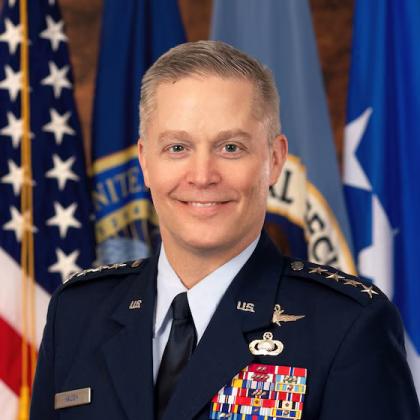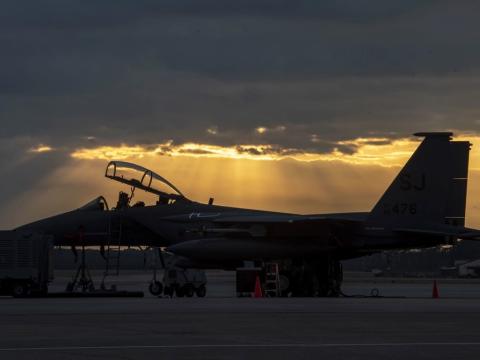U.S. Cyber Command: Cyber Threats From State Actors
The U.S. military, the nation and its allies and partners will continue to see increasing threats in the cyber domain meant to cause great harm to national security.
Testifying before Congress this week, Gen. Timothy Haugh, USAF, commander, U.S. Cyber Command (USCYBERCOM), expects cyber-based threats to U.S. democracy aimed at this year’s election, especially from Russia, the People’s Republic of China (PRC) and Iran.
The general took over as commander of USCYBERCOM, director of the National Security Agency and chief of the Central Security Service from Gen. Paul Nakasone, USA, in February.
Gen. Haugh warned the House of Representatives Armed Services Subcommittee on Cyber, Information Technologies and Innovation that the PRC and Russia have steadily integrated cyber attack capabilities into their military planning and operations. And along with Iran, they are increasingly using social media and state-sponsored disinformation sites—both intently and discreetly—to shape narratives and sow confusion.
“We are particularly concerned with adversaries probing and exploiting our military and intelligence networks, compromising the U.S. defense industrial base networks in order to steal weapon system technology and accessing or attempting to compromise U.S. critical infrastructure,” Gen. Haugh stated. “Additionally, our adversaries are targeting social media to coerce our personnel and monitor troop movements of U.S. forces.”

We assess that Iran particularly seeks to increase operations and targeting of industrial control systems to disrupt critical infrastructure.
The PRC also has the world’s largest cyberspace operations workforce.
As such, USCYBERCOM is “laser focused” on the strategic and operational challenges that the PRC creates in cyberspace. The command is intently supporting the U.S. Indo Pacific Command and commander Adm. John Aquilino, USN, and providing the tools that the command needs. In addition, a collaboration between USCYBERCOM and the NSA, called the China Outcomes Group, is meant to provide intelligence insights, cybersecurity improvements and operational outcomes for joint force commanders and the country.
“We are particularly focused on defending against the PRC’s persistent access and pre-positioning for attack on U.S. critical infrastructure systems,” Gen. Haugh said. We will do everything we can to deter the PRC from using these accesses to attack the United States.”
As for Russia, which the commander sees as “an acute threat to the free and open global system,” their military and intelligence cyber forces “are capable and persistent.” Moreover, Putin’s war on Ukraine has only diverted Russia’s global intelligence and operational efforts.
“Moscow likely views the upcoming U.S. election as an opportunity for malign influence and has previously targeted elections in the United States and Europe,” he warned.
Since Russia’s invasion of Ukraine in February 2022, USCYBERCOM has worked to strengthen the security of the Department of Defense Information Network, known as DoDIN, U.S. critical infrastructure including nuclear command and control, and the cyber resilience of NATO Allies.
Iranian actors, meanwhile, continue to aggressively collect intelligence from the cyber domain to support cyber attacks, digital propaganda and regime control of domestic Internet access.
“We assess that Iran particularly seeks to increase operations and targeting of industrial control systems to disrupt critical infrastructure,” the commander emphasized. “USCYBERCOM supports U.S. Central Command in its work to deny and deter Iran. In addition, from the outset of the Israel-Hamas war, USCYBERCOM has supported significant efforts to bolster the cyber defenses of Israel and other regional partners.”





